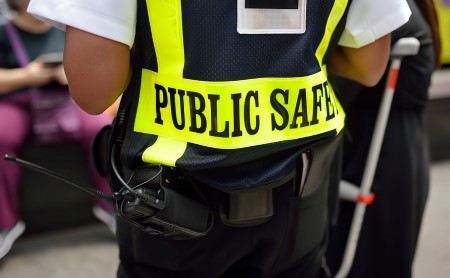State Actions on COVID-19 Vaccine Requirements and Verification
August 26, 2021 | Ashley Ottewell
 As the COVID-19 Delta variant surges across the country, public and private employers have started instituting COVID-19 vaccination, testing, and masking protocols for their employees. On July 29, 2021 the White House announced that all federal employees would be required to be vaccinated or would have to comply with new masking rules, undergo weekly testing, and adhere to other mitigation measures. The administration also announced that nursing homes that fail to vaccinate staff will risk losing Medicare and Medicaid funding. Additionally, many private businesses—such as Microsoft, Google, Facebook, and Tyson Foods—have announced that they will require employees to provide proof of COVID-19 vaccination or undergo routine testing as part of employment.
As the COVID-19 Delta variant surges across the country, public and private employers have started instituting COVID-19 vaccination, testing, and masking protocols for their employees. On July 29, 2021 the White House announced that all federal employees would be required to be vaccinated or would have to comply with new masking rules, undergo weekly testing, and adhere to other mitigation measures. The administration also announced that nursing homes that fail to vaccinate staff will risk losing Medicare and Medicaid funding. Additionally, many private businesses—such as Microsoft, Google, Facebook, and Tyson Foods—have announced that they will require employees to provide proof of COVID-19 vaccination or undergo routine testing as part of employment.
Beyond activities at the federal level and in the private sector, several states have also taken executive and legislative action on COVID-19 vaccination requirements. Some states, like those listed below, now require employees who work in a healthcare facility or with medically vulnerable populations to adhere to COVID-19 vaccination, testing, and masking protocols. Others have established COVID-19 requirements for state employees. Below is a summary of these actions.
Vaccine Requirements for Medical Professionals and Employees of Long-Term Care Facilities
- California issued an order requiring COVID-19 vaccination for healthcare workers, allowing only religious or rare medical exemptions. Employees of hospitals, nursing homes, doctors’ offices, clinics, and other medical facilities have until Sept. 30 to receive one dose of the Johnson & Johnson vaccine or two doses of Pfizer/Moderna vaccines, otherwise they must undergo mandatory testing and wear a surgical or N95 face mask at all times.
- Massachusetts issued an emergency order requiring nursing home employees to be vaccinated by Oct. 10, allowing only religious or medical exemptions.
- Washington, D.C. announced that all healthcare workers must receive at least the first dose of the Pfizer/Moderna vaccine or one dose of the Johnson & Johnson vaccine by Sept. 30, with medical or religious exemptions allowed.
- New York issued an order requiring all healthcare workers in the state to be vaccinated by Sept. 27.
Vaccine Requirements for State Employees
- California implemented a protocol requiring state employees to submit to weekly COVID-19 testing or get a COVID-19 vaccine beginning Aug. 2.
- Virginia Governor Ralph Northam announced that all state employees, including public-facing contractors and employees at state universities and colleges, would be required to get a COVID-19 vaccine or submit to weekly COVID-19 testing starting Sept. 1.
- Governor Larry Hogan of Maryland announced that state employees in 48 facilities, including Department of Health and Department of Public Safety and Corrections facilities, would be required to get a COVID-19 vaccine or undergo weekly testing. Employees who forego a vaccine will be required to wear face masks while indoors starting Sept. 1.
- A North Carolina executive order requires state employees working in cabinet agencies to show proof of vaccination by Sept. 1 or undergo testing at least once a week.
- Governor Murphy of New Jersey issued an executive order requiring all state employees and preschool—grade 12 personnel to show proof of vaccination by Oct. 18 or undergo testing at least once a week.
On the flip side, some states have prohibited public and private employers from requiring proof of COVID-19 vaccination as a condition of employment or required employers to accommodate certain employees who do not vaccinate against COVID-19.
Limiting Employee Vaccine Requirements and Verification
- New Hampshire enacted a bill (HB 220) stating that the state department of corrections may mandate immunization for inmates when a “direct threat,” as defined by federal law, exists.
- Arizona enacted a bill (SB 1824) requiring employers to provide reasonable accommodation to employees with sincerely held religious beliefs, practices, or observances that prevent the employee from taking the COVID-19 vaccination unless the accommodation would pose an undue hardship. However, the bill will allow healthcare institutions to require employees to be vaccinated.
- Georgia’s governor issued an executive order prohibiting state agencies and providers of state services from imposing proof of vaccination as a requirement for employment, entering state property, or conducting business with the state. The order further prohibits the Georgia Registry of Immunization Transactions from being shared with private entities for the purpose of prohibiting access to employment.
With FDA’s recent approval of the Pfizer-BioNTech COVID-19 vaccine, more public and private employers may become willing to require their employees to adhere to a protocol for COVID-19 vaccinations, testing, and masking. ASTHO will continue to keep its members informed as the situation evolves.